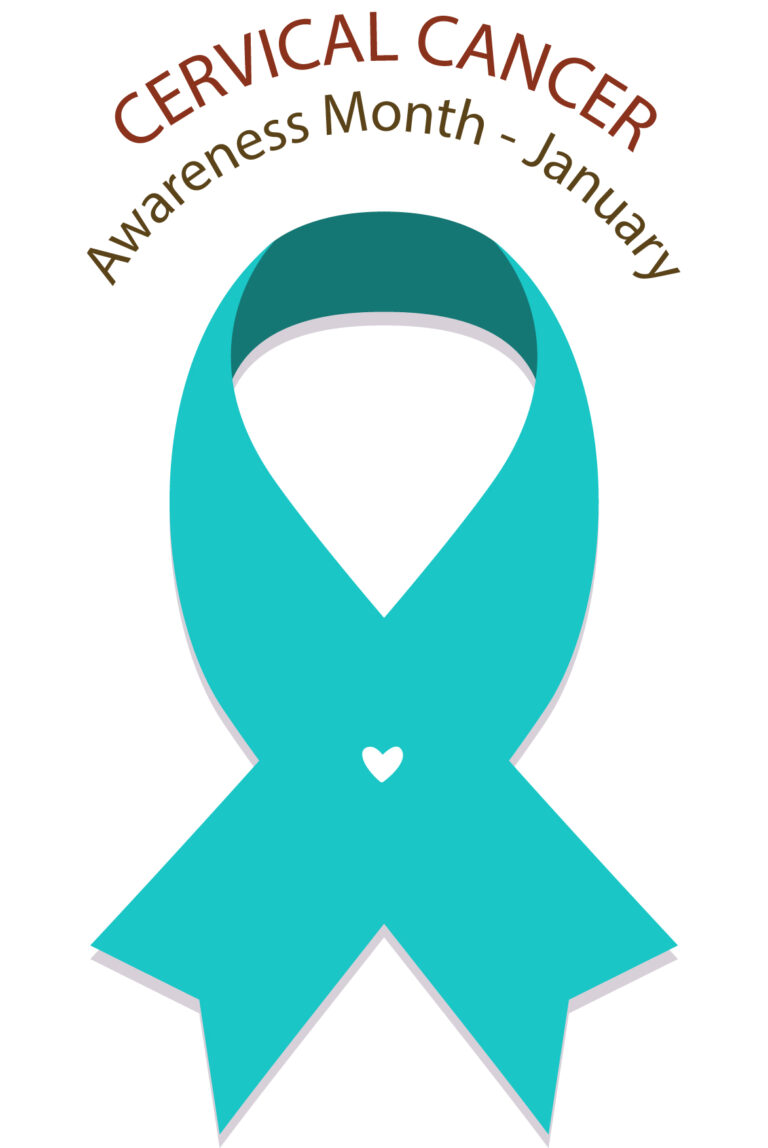CERVICAL CANCER
Cervical health is an important topic that all women should be aware of. The cervix is the lower part of the uterus that connects to the vagina. It is responsible for protecting the uterus and providing passage for the baby during childbirth. However, the cervix can also be susceptible to certain health conditions that can lead to serious complications if left untreated.
One of the most common cervical health issues is cervical cancer. This type of cancer develops in the cells of the cervix and can be caused by the human papillomavirus (HPV) infection. WHO says two Human papillomaviruses (HPV) types (16 and 18) are responsible for nearly 50% of high-grade cervical pre-cancers. Cervical cancer is the most common cancer women are diagnosed with and 67477 is the death rate in India. Women between the ages of 15 and 45 are mostly diagnosed with cervical cancer.
WHAT IS HPV?
HPV is a most prevalent sexually transmitted infection and it is also the major cause of cervical cancer globally. Mostly, the infection is invisible, and most HPV-infected individuals don’t exhibit any symptoms. But it can be prevented through vaccination. Regular cervical cancer screenings, such as a Pap test, can also help detect cervical cancer early when it is most treatable.
 HOW IS HPV RELATED TO CERVICAL CANCER?
HOW IS HPV RELATED TO CERVICAL CANCER?
Certain strains of HPV (most often types 16 and 18) can cause changes in the cells of your cervix, called cervical dysplasia, which is the abnormal growth of cells on the cervix. This condition can lead to cervical cancer if left untreated. Cervical dysplasia can be diagnosed through a Pap test or a colposcopy, which is a procedure that uses a microscope to examine the cervix.
HOW DOES HPV SPREAD?
You can get HPV by having vaginal, anal, or oral sex with someone who is infected with the virus. It is most commonly spread during vaginal or anal sex. It also spreads through close skin-to-skin touching. If you are sexually active, you can get HPV, even if you have had sex with only one person. You also can develop symptoms years after having sex with someone who has the infection. Cervical cancer is often asymptomatic. This makes it hard to know when you first got it.
It can take years for cervical cancer to develop. The abnormal cells caused by HPV may take several years to progress to cervical cancer. This is why regular cervical cancer screenings are so important, as they can detect these abnormal cells before they turn into cancer.
CERVICAL DIAGNOSIS
Bimanual pelvic examination and sterile speculum examination are two common diagnostics. In these examinations, the doctor will check for any abnormal changes in the patient’s cervix, uterus, vagina, ovaries, and other nearby organs. To start, the doctor will look for any changes to the vulva outside the body, and then, using an instrument called a speculum to keep the vaginal walls open, the doctor will look inside the vagina to visualize the cervix.
PAP TEST
Pap smears are used to find cancerous and precancerous cells in the cervix caused by high-risk HPV infections. A speculum is inserted into the vagina to view the cervix and uses a small brush to collect a sample of cervical cells to identify any cancerous cells or abnormal changes that could lead to cancer.
PREVENTION
Cervical cancer is preventable and treatable. With regular cervical cancer screenings, HPV vaccination, and follow-up care, cervical cancer can often be prevented or caught early. When cervical cancer is caught early, it is highly treatable with a high survival rate.
To maintain cervical health, women need to schedule regular check-ups and screenings with their healthcare providers. This includes regular Pap tests and HPV tests, as well as pelvic exams. Additionally, women should practice safe sex by using condoms and limiting the number of sexual partners. It can also be prevented by receiving the HPV vaccine.
The HPV vaccine Gardasil is used for the prevention of cervical cancer caused by HPV for people between ages 9 and 45. To help prevent cervical cancer, HPV vaccination is recommended for all adolescents as part of their routine vaccines. It may be given starting at age 12.

Another way to take care of cervical health is to maintain a healthy lifestyle. This includes eating a balanced diet, getting regular exercise, and avoiding smoking and excessive alcohol consumption. These lifestyle changes can not only help prevent cervical cancer but also improve overall health.
Additional actions that can help prevent cervical cancer include:
• Retarding first sexual intercourse until the late teens or older
• Practicing safer sex by using condoms
• Avoiding sexual intercourse with people who have had many partners
• Avoiding sexual intercourse with people who are infected with genital warts or who show other symptoms
UNKNOWN FACTS ABOUT CERVICAL CANCER
♥ Pregnant women can still get cervical cancer screenings. It is important for pregnant women to still have regular cervical cancer screenings, as they are still at risk of developing cervical cancer. Special precautions will be taken during the screening to ensure the safety of the baby.
♥ Men can also be affected by HPV. Although cervical cancer is a disease that primarily affects women, men can also be affected by HPV. Men can develop genital warts and other HPV-related cancers, such as anal and oropharyngeal cancer.
♥ Cervical cancer can recur. Even after successful treatment, cervical cancer can recur. Regular follow-up care is important to ensure that any recurrence is caught early and treated effectively.
♥ Cervical cancer can also occur in people who have had a total hysterectomy, which is a surgical procedure that involves the removal of the uterus and cervix. This is because cancer can develop in the remaining tissue of the cervix.
♥ Even though cervical cancer is considered a preventable and curable disease, some women with cervical cancer may experience recurrence after treatment, which could be due to various reasons like not following the treatment plan, or not having enough follow-up check-ups.
Cervical health is an important aspect of women’s health that should not be overlooked. Regular check-ups, screenings, and healthy lifestyle choices can help prevent cervical cancer and other cervical health issues. By being aware of cervical health and taking steps to protect ourselves, we can help ensure that we can lead healthy and fulfilling lives.

Written by Sowmya R